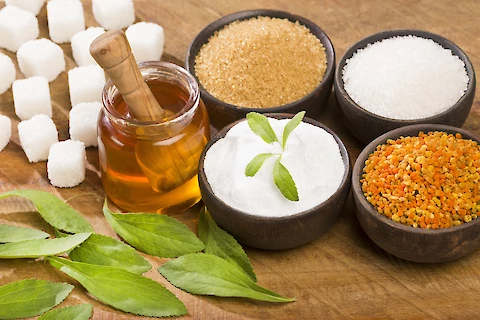
Sugar often finds its way into our diets, sometimes without us even realizing it. For seniors, understanding the differences between good and bad sugars is crucial for maintaining optimal health and well-being. This comprehensive guide aims to shed light on this topic, offering valuable insights and practical tips for seniors to make informed decisions about their sugar intake.
What Is Sugar?
Sugar is a type of carbohydrate which the body utilizes for energy. The different types of sugar, namely glucose, fructose, and sucrose, all have their unique roles in the body. They provide much-needed energy to our cells, play a crucial part in brain function, and keep our bodies operating optimally.
Bad Sugars
"Bad sugars" typically refer to sugars added to foods during processing, such as sodas, candies, and pastries. They're also often present in unexpected items like bread, sauces, and even salad dressings. These added sugars, along with alternatives like corn syrup, can lead to various health issues when consumed in excess, such as weight gain, diabetes, and heart disease.
Artificial Sweeteners
Artificial sweeteners are often marketed as a healthier alternative to sugar. However, they can sometimes be a double-edged sword. While they provide sweetness without calories, some studies suggest potential health effects, including an increased risk of glucose intolerance and metabolic syndrome.
Good Sugars
"Good sugars" are naturally occurring sugars, such as those found in whole fruits, vegetables, and dairy products. They are considered "good" because they are consumed as part of a whole food item with other beneficial nutrients, like fiber, vitamins, and minerals. Consuming good sugars as part of a balanced diet can provide sustained energy, support a well-functioning immune system, and contribute to overall health.
Tips for Seniors to Limit Bad Sugars and Increase Good Sugars
One effective method for limiting sugars is reading food labels to understand sugar content and reduce the consumption of processed foods. Opt for whole fruits as a sweet snack instead of candies or other sugary treats. You can also replace sweetened beverages with water, herbal tea, or natural fruit-infused water.
Increasing good sugars in your diet can be achieved by incorporating more whole fruits, vegetables, and dairy products into your meals. This could mean adding berries to your morning oatmeal or having a piece of fruit for dessert. Add a few of your favorite fruits to your weekly grocery order, and you can start enjoying long-lasting health benefits.
Senior Helpers Offers Custom Senior Care
Understanding the difference between good and bad sugars is an integral part of maintaining a healthy lifestyle as we age. It's not about avoiding sugar altogether but choosing the right kind of sugar and moderating our intake for balanced nutrition.
If you need support in managing your daily meals or want help to lead a healthier life as you age, contact us at Senior Helpers of Bolingbrook. We're committed to caring for your well-being and catering to seniors in Bolingbrook, Crest Hill, Joliet, Woodridge, and Darien.